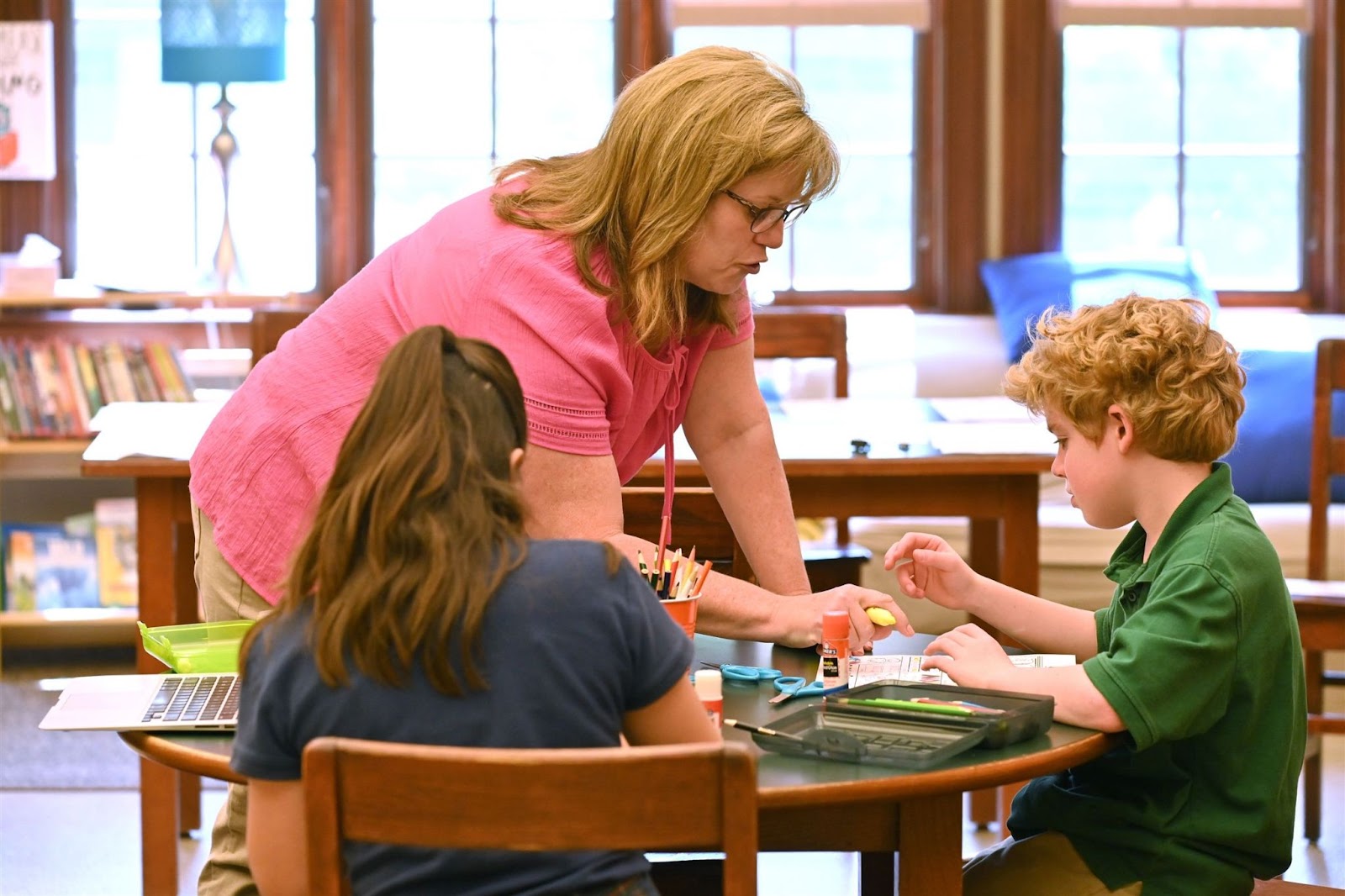People with ADHD often have trouble with certain skills, such as time management, working memory, staying on task, planning, and organization. These also happen to be the exact same skills needed to make, maintain, and follow routines. Because creating routines helps strengthen these important facets of human behavior, it’s crucial for children, teens, and adults with ADHD to have routines in place in their life that they can learn and master over time.
If you’ve enrolled your child in an ADHD boarding school, they will have a regimen to follow each day. This might include going to classes at a certain time or following a standard procedure in the lunchroom. As a parent, you can help your child with ADHD learn how to best manage their day by implementing routines at home.
Kids Need Structure
There are many reasons that children who attend ADHD boarding schools thrive with routine. This is because they know what to expect, and the routine becomes a long-term action that’s committed to memory. Structure also provides children with a sense of safety and security, which can help them better focus on other areas where they need improvement.
The Benefits Of A Schedule
It is not simply enough to write a schedule down. For it to be effective for a child with ADHD, it must be followed each day. Routines help make life manageable, and your entire family will experience less stress if there’s no question about what happens next.
Morning, Noon, And Night
Teenagers that attend ADHD boarding schools have a strict regime they follow each day. However, if your child is not yet boarding school age, a few things you can do in the morning are to turn off the news once the kids are up, have a healthy breakfast, and get everyone started on brushing teeth and grabbing lunch boxes.
In the afternoons, make sure that your children have a set schedule for homework. While you might want to give them half an hour to wind down after a hectic day, enforce a set homework start time. Since children with ADHD have trouble concentrating and staying on task, you’ll want to stick close by to gently direct their attention back to their homework when needed. Give them a few breaks, and make sure that your children have something to look forward to, such as a quick dip in the swimming pool or an episode of their favorite TV show, when they’re done with their homework.
Nighttime presents special challenges for children with ADHD, especially younger kids who may be exhausted and cranky by dinnertime. Use your time around the table to listen to your children and communicate with each other. This is also a great time to discuss any potential changes to the next day’s schedule. After dinner, plan for some downtime so the children can be ready for bed at their appointed hour.
Bedtime routines should consist of hygiene (brushing teeth, washing hair), comfy pajamas, storytime, and whatever else your child needs to settle their mind and body.
Ultimately, routines are a great addition to every family's day. However, when you have a child with ADHD, routines do more than just keep you on schedule. They can help your child develop skills that will help them throughout their lifetime.
Currey Ingram Academy is an ADHD boarding school located just south of Nashville in the suburb of Brentwood. For more information, visit us online or call the admission office for more insight.
Public and private education has been front and center on the local and national news for years. While our public school system’s educators work tirelessly to ensure the needs of their students are met, they often lack the resources to do so. Further, teachers and aides being spread thin at every turn means it is more difficult to offer truly tailored accommodations to the students who need it most.
Private schools in Brentwood, TN, and the surrounding areas may be a great choice for parents of students with learning differences that present great challenges in a public school setting. Currey Ingram Academy offers many advantages for students with ADHD, dyslexia, and other learning differences. As you’re sorting through private schools throughout Brentwood, consider these points:
Money is often a concern for families applying to boarding schools in the South. Thankfully, however, Currey Ingram Academy has many financial aid opportunities available to students of all income brackets.
Tuition
Independent education is an investment in a child’s future. It is one that must be carefully considered by all families before making a significant financial commitment. Currey Ingram offers two tuition structures, one for day students and one for high school students enrolled in our boarding school in the south part of Nashville. Day students can expect tuition of $46,250 (2022/23), which includes quality education, lunch, most school supplies, the use of a Chrome book or iPad, and snacks. Boarding tuition is $73,910 and covers all of the above plus select afterschool and weekend activities as well as breakfast, dinner, and room and board.
All students are also required to pay a $300 enrollment fee each year.
Financial Aid
Many boarding schools in the South offer financial aid. Currey Ingram is proud to provide opportunities for students and their families to receive up to 50% off their tuition. There are some cases where students may be eligible for 75% of tuition coverage. Financial aid is typically given throughout a child’s duration of attendance. However, eligibility requirements and award limits are reevaluated each year.
How To Apply
Applying for financial aid begins with filling out an application. These are provided to families before the application deadline each year. Parents applying for financial aid must have their financial information available, including W-2s, Social Security statements, mortgage balance statements, and credit card account information.
Like other boarding schools in the South, Currey Ingram handles financial aid applications through its business office, which looks at financial aid applications as a process separate from admission. Once applications are received, they will either be approved or denied by the Board of Trustees Financial Aid Committee. Financial aid applications are due within the first half of March for those students who received financial aid in the prior year. Students who have not received financial aid previously must wait until the second half of the month.
New students may also apply for financial aid, and these applications are reviewed and vetted after those of existing students.
Currey Ingram recognizes the need for specialty boarding schools in the South and understands the great financial strain this can cause some families. Financial aid options support Currey Ingram’s mission to provide students with learning differences with the education they deserve. The school encourages all families, regardless of income, to apply if they are in need of assistance.
For more information about financial aid, contact the business office.
Currey Ingram is one of the leading boarding schools in the South and offers exceptional instruction for children with learning differences, such as ADHD and dyslexia.
Whether you are the parent of a child with a known learning difference or suspect ADHD or dyslexia, a psychoeducational or speech-language evaluation can give you answers and direction.
If you found this article after searching “ADHD schools near me,” then you are likely concerned that your child has a learning difference that can affect their ability to thrive in a public school. But, how do you know when your child’s behavior is “normal” and when intervention might be necessary?
Early Warning Signs
According to teachers and staff at our dyslexia boarding school, learning differences can manifest as young as two or three years old. Children in the preschool years may have trouble learning the alphabet, numbers, or other sequential bits of information, such as the months or days of the week. They may become easily distracted to the point of having trouble connecting with their peers. Children in this age group may find it difficult to rhyme words, and they may begin speaking months or more after their same-age counterparts.
Elementary school
By the time children reach kindergarten, learning differences may manifest more clearly. Children at this age may need a bit of extra support in school if they rely on memorization instead of skill learning, can’t quite grasp the concept of time, are prone to accidents, or frequently transpose numbers and letters. Slow recall, impulsiveness, and recurrent word confusion may also indicate common learning differences, such as visual processing delays, dyslexia, or dyscalculia.
Early Detection Is Key
The most common learning difficulties affect reading and language skills. However, early intervention, ideally before a child begins school, will give them the tools they need to compensate throughout their academic years. In fact, students with learning differences who receive a diagnosis early often score average or above average on reading benchmark measurements. By contrast, students who do not receive a diagnosis can suffer from low self-esteem, behavioral problems, and, later, trouble holding a job.
Same Road, Different Route
Children with learning differences are every bit as capable and often of above-average intelligence. However, the way they learn makes it more difficult for them to thrive in a standard academic setting. These students do not process information the same as their classmates; they must instead learn ways around their differences. Ultimately, students facing learning challenges can overcome obstacles simply by receiving the support they need during their formative years.
Learning is not the same from one student to the next. Whether you’re looking for dyslexia boarding schools or ADHD schools near you or are simply seeking more information on learning differences, Currey Ingram Academy can help. Our admission counselors can help you decide if a private boarding school is right for your child and their unique learning differences.
Currey Ingram Advantage
- What difference could the right school make in your child’s life?
- Imagine what success can look for your child.
- Our approach to teaching and learning is designed to empower every student to reach his/her fullest potential.








